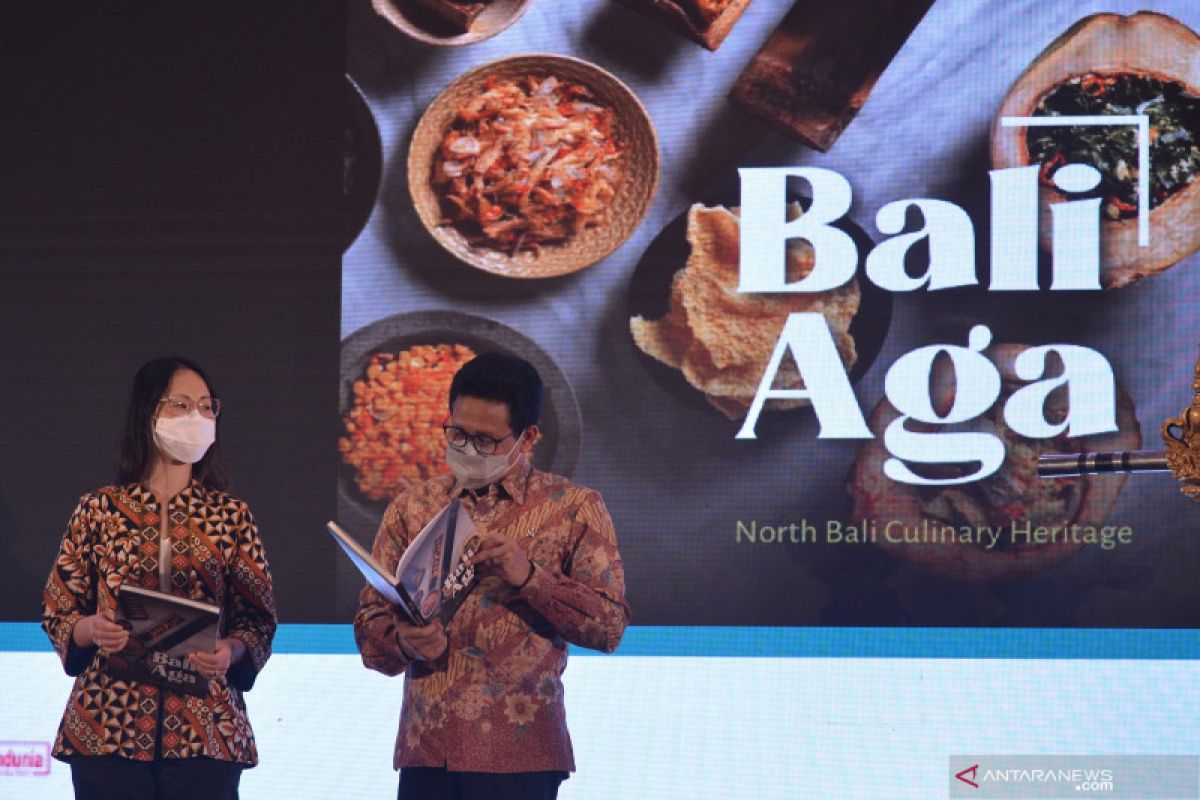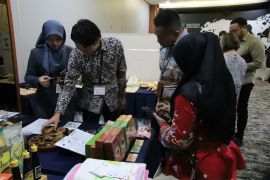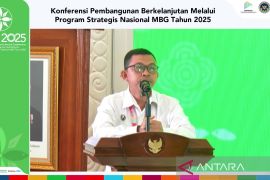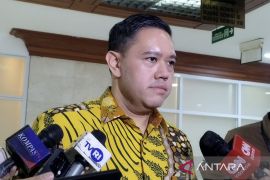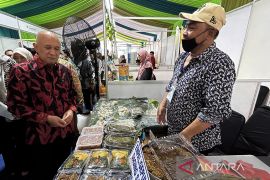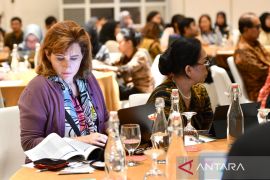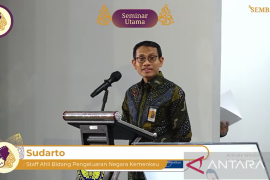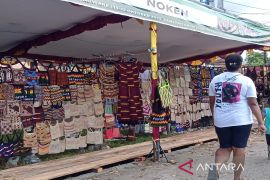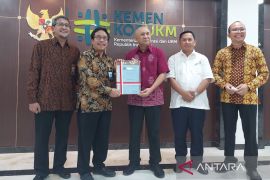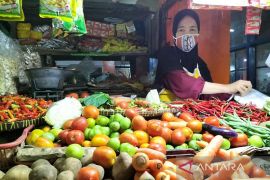The event, Langkah Awal, Sinergi Besar (First step towards great synergy), was organized by the NSLIC/NSELRED project and the Ministry of Villages, Development of Disadvantaged Regions, and Transmigration (Kemendes PDTT).
The event followed a similar business meeting focused on the Belitung pepper industry and held in August 2021, which garnered strong interest from investors and stakeholders, officials said.
In his opening remarks at the event, Minister of Villages, Development of Disadvantaged Regions, and Transmigration, Abdul Halim Iskandar, said that economic recovery in rural areas, through the Village Fund program, is one of the priorities of his ministry.
The fund seeks to empower local people in difficult situations, and particularly those who have lost their jobs, who are single parents, or belong to other marginalized groups, and is managed by the community for the community through the PKTD or the village cash labor intensity program, he informed.
There have been many innovations in developing the rural economy that were born from the villages and became the strength of the villages, he pointed out. The innovations have been implemented through empowerment and mentoring activities to increase added value and create superior rural products, upstream to downstream, as well as by strengthening village economic institutions – village-owned enterprises / joint village-owned enterprises (BUMDesa/BUMDesma), he further explained.
As village-owned enterprises, most of the capital ownership of BUMDesa comes from the village, Iskandar noted. To support the legality of BUMDesa institutions and for the efficient running of their business, the government issued Law no. 11/2020 concerning Job Creation, which enables BUMDes to run operational businesses and operate a legal business entity (as an Investment Company), he informed.
In other words, BUMDesa is a door to promote economic independence and develop the economic potential of residents towards Kebangkitan Desa or Village Awakening, he remarked.
Generally, the BUMDesa does not replace existing rural businesses but consolidates the efforts of the local people, he said. In addition to carrying out economic activities, the BUMDesa also acts as a guardian of village cultural heritage assets, he added.
"Through today’s business meeting, the Ministry of Villages seeks to further strengthen partnership cooperation with all stakeholders related to the development of local village economic and institutional potential. Thus, the objectives of the Village SDGs can be achieved in terms of Equitable Village Economic Growth (SDG 6) and Village Development Partnership (SDG17),” Minister Iskandar said.
During the business meeting, NSLIC and Kemendes PDTT invited Astra Internasional, Elevenia, BNI, Indonesia Eximbank, UKM Mendunia, TaniHub, Tokopedia, SEA Group (Shopee), and 12 other investors to see firsthand the products produced by approximately 500 farmers and artisans representing 25 business groups in Buleleng, Klungkung, and Tabanan.
These three regions have received technical assistance from NSLIC through an initiative called the Responsive Innovation Fund (RIF) that aims to improve the quality of local commodities and products; strengthen local institutions, such as BUMDes and BUMDesma; and build the capacity of the beneficiaries, the minister said.
Through the RIF initiative, some products of Nusa Penida have been developed during the pandemic such as coconut chips and modified cassava flour, he informed.
In Buleleng, technical assistance was provided to improve the quality of palm sugar and bamboo handicraft products, he said. As a result of this support, the artisans are now able to create products with new designs that meet market demand, he added.
In his opening remarks at the event, Canada’s Ambassador to Indonesia, Cameron MacKay, conveyed his appreciation and strong support for Indonesia’s efforts to support the development of the country’s micro and small businesses through the Canada-funded NSLIC program.
"This program has produced tangible results for local people and communities across Indonesia and particularly in Bali. Through trainings and technical support, local farmers and business owners were able to improve the quantity and quality of their commodities, diversify their products, improve their financial management and marketing skills, and access assistance to obtain required licensing and permits even in the face of the COVID-19 pandemic," he said.
Ambassador MacKay further explained that the event marked an important step for local businesses to flourish and expand as the project has facilitated partnerships with major enterprises that will not only buy local products, but also continuously provide assistance to small businesses on improving their products and growing their businesses.
He encouraged multi-stakeholders present at the meeting to help the local businesses to enter not only the local and domestic market, but also to go international markets.
Furthermore, several products made by the businesses have attracted investors, he noted. From Tabanan there are Pertiwi Organic Rice and Leak Coffee, ‘Uyah’ Kusamba Salt; and Kella Soap from Klungkung; also products from Buleleng such as Kejapa Robusta Coffee, Amplem Sari Mango, Prani Eucalyptus Oil, Bali Green Caviar, and Strawberry Frozen, he said.
During the business meeting, the Government of Canada, through NSLIC/NSELRED Project, also launched the Traditional Recipes Book of Bali Aga Buleleng.
In addition to preserving the traditional recipes of the Bali Aga community that have never been recorded before, the book also aims to support women’s business groups in Buleleng to build their culinary businesses and increase their income, especially during the COVID-19 pandemic, Iskandar said.
The support is essential as the pandemic has severely impacted the informal sectors that employ many women workers, such as in the trade, hotel, restaurant, and service sector, especially in the province of Bali which relies heavily on tourism and other related service businesses, he added.
The book also promotes healthy and affordable local food to reduce stunting rates and improve maternal and child nutrition, he said.
Several investors who had agreed to enter into cooperation with micro and small business owners signed cooperation agreements during the business meeting, officials said.
Related news: Investors should prioritize development of BUMDes: minister
Related news: Minister pushes village enterprises to diversify business line
Copyright © ANTARA 2021
